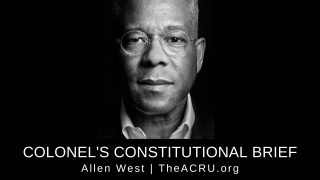INTERVIEW: Sheriffs Awarded for Enforcing Federal Immigration Laws, Resisting Leftist Pressure Groups
In an exclusive interview, Lt. Col. Allen West tells Restoration News that elected sheriffs who partner with federal agents to enforce immigration laws deserve recognition for upholding their oath to the U.S. Constitution while resisting leftist ideologues. Col. West now serves as the executive director of American Constitutional Rights Union (ACRU), which works as a counterbalance to the extreme leftist ACLU.



